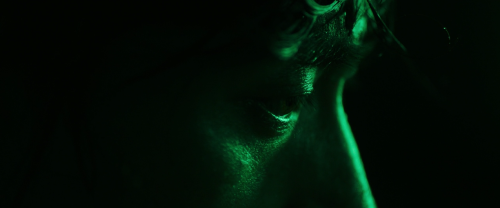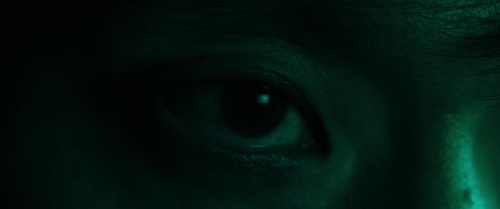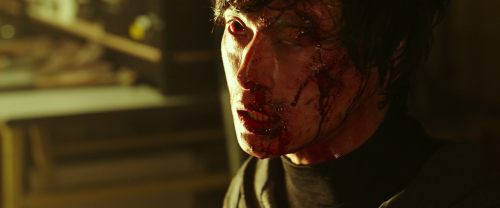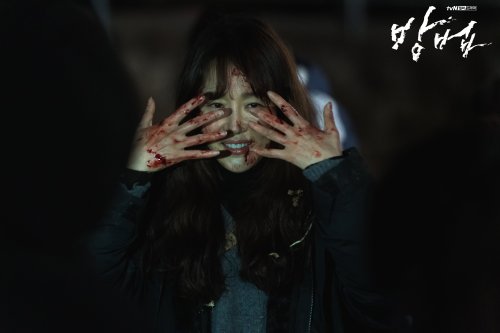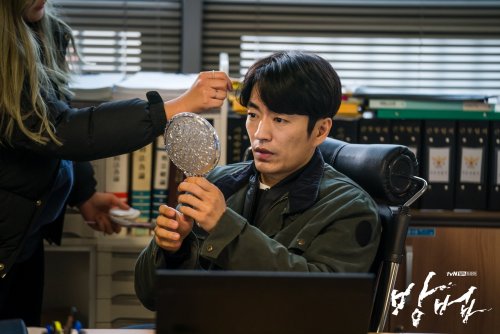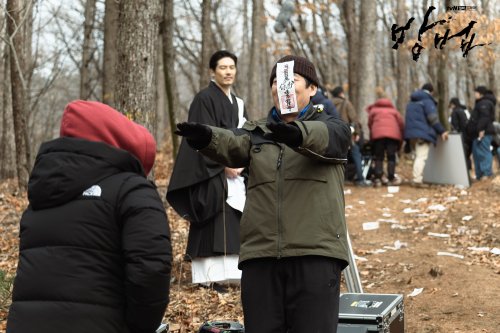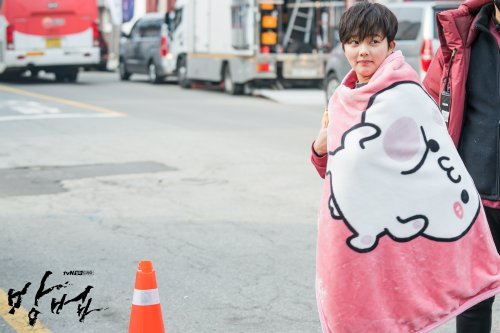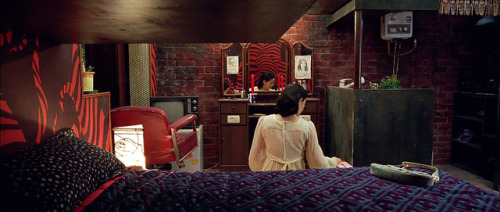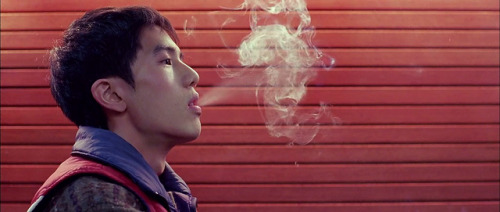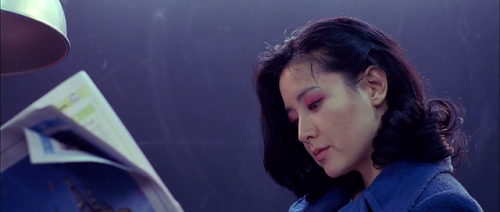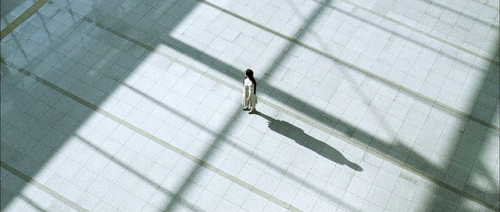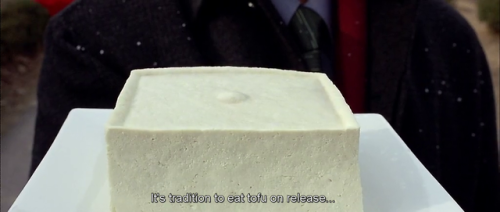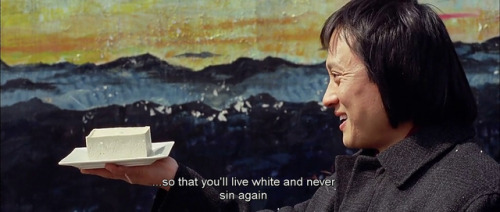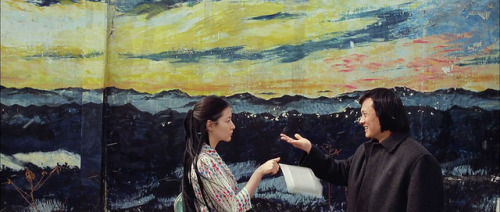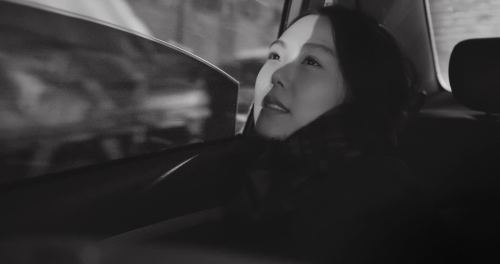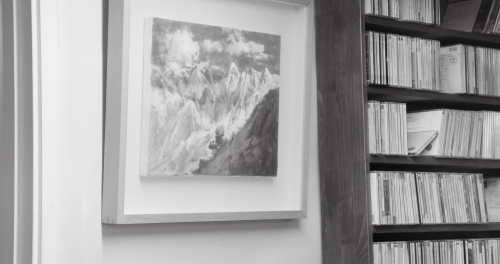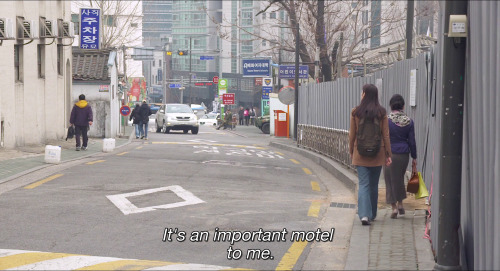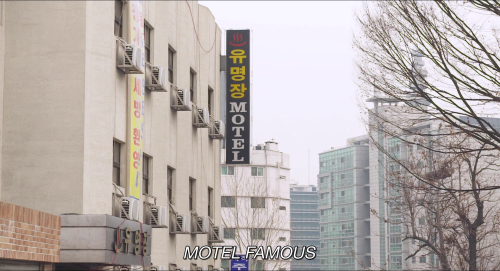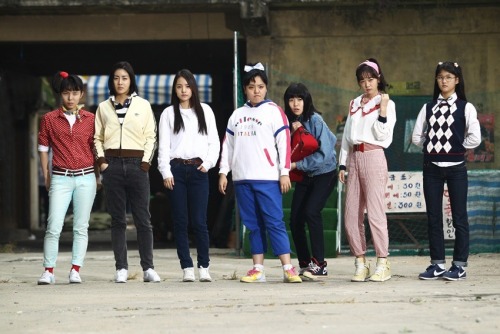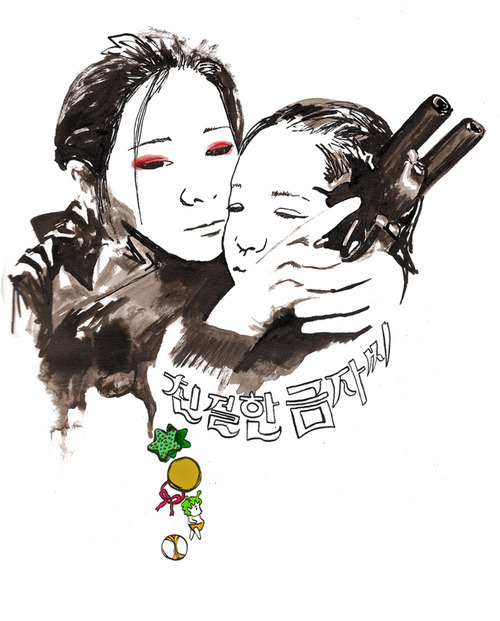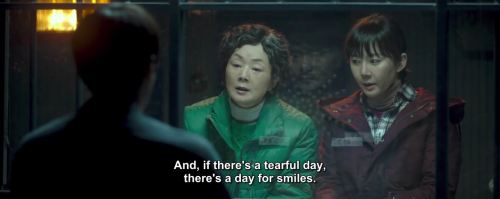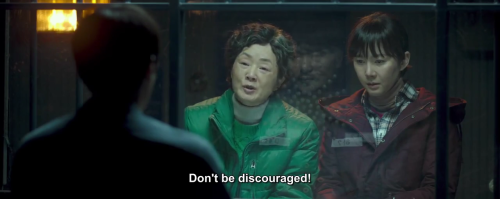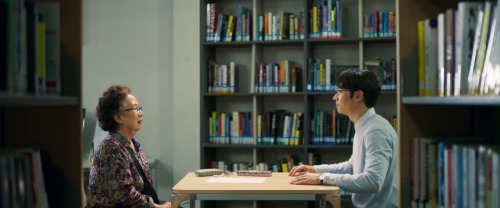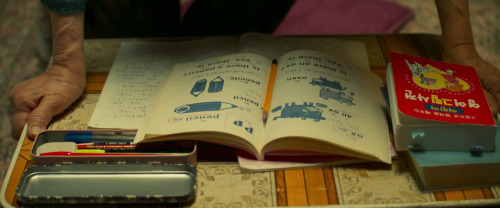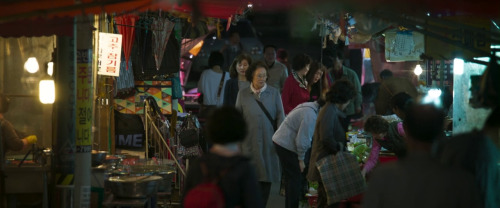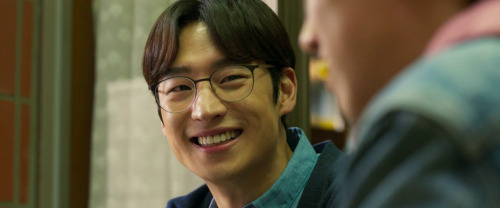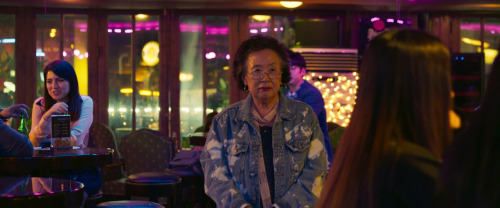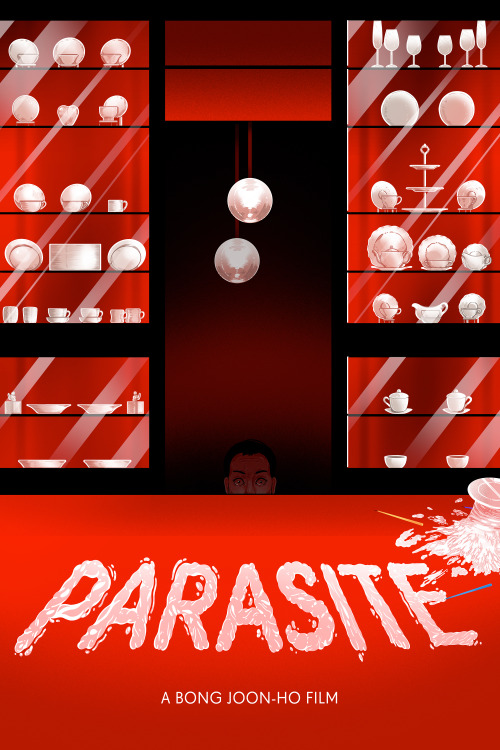#korean film


Seo In-Kyeong in the film Jeon Woochi
i decided to watch a hard day, being a fan of jo jin-woong and lee sun-kyun, and seeing how it had multiple cannes accolades.

a hard day is about a corrupt cop (lee sun-kyun) who extorts money and an even more corrupt cop (jo jin-woong) who smuggles and distributes drugs in illegally-run nightclubs. when lee sun-kyun accidentally hits and buries a man jo jin-woong is after, lee finds himself threatened by jo, who forces him to unearth and deliver the wanted man.
as you can probably guess from the above description, most of what happens in this film doesn’t re-invent the wheel of this genre. except for the fact that lee had buried the man together with his mother in her coffin, and the sequence that led to that joint burial was ingenious. lee, who had dumped the body bag in his car trunk, had to somehow move the body to the hospital morgue and then into his mother’s coffin, all in 15 minutes. this borderline ridiculous act is achieved by connecting the body bag and his daughter’s radio-controlled toy with a string, then using the toy’s remote to pull the string - and later the body bag - through the hospital’s vents. by keeping the scenes fast-paced with little elaboration, the director (who also directed netflix’s kingdom) forces the viewer to keep up.
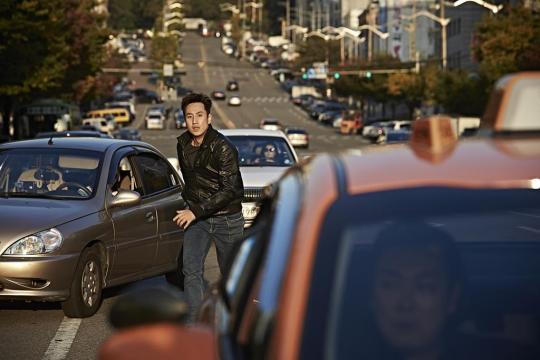
granted, there are there small bits of typical korean film humour in a hard day (e.g. jo assaulting lee in the office on the pretext of “oh i thought he was someone else”, lee half-heartedly investigating the hit-and-run case he had committed). but these moments fell somewhat flat, and do not contribute to the movie’s tone. instead, the director’s willingness to move the plot along quickly made a hard day a much more pleasant watch.
unfortunately i think action thrillers about corrupt cops are, by nature, fairly limited in plot content and character development. as films of this genre go, it does an above average job by keeping the pace fast and action scenes taut. – 7/10
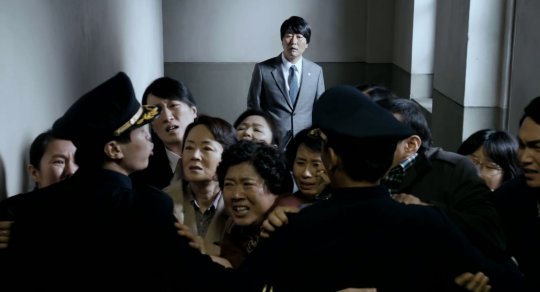
how do you judge a film that centres around a modern historical event & biopic, written for a patriotic domestic audience whose minds are still afresh with emotions of the era?
song kang-ho plays enterprising tax-turned-human rights lawyer sung woo-suk, who is not so discreetly modelled after roh moo hyun, who was also involved in the 1987 uprisings against korea’s then-authoritarian rule and later became the president of korea. the film takes place in 1981, when the spectre of the 1980 gwangju uprising looms large in everyone’s minds. for historical context, the 1980s was a dark period in korea’s history, when korea was ruled by a series of authoritarian and heavy-handed presidents. the images of 1980 gwangju often remind people of tiananmen.
having been treated kindly by an ahjumae who sells gukbapwhen he was a poor construction worker studying to become a lawyer, song sacrifices his lucrative career to defend her son and university students, who have been arrested on the counts of studying contraband literature that promotes socialist unrest. in a plot that closely narrates reality, song sets out to prove the innocence of these university students and expose the inhumane torture methods employed by the police to extract confessions.
there is little room to comment on the plot itself, given that the film is so tightly tethered to historical events (in the same way that i am frustrated by the plot in juror 8). often i find that historical films get more creative leniency when remaking events that happen generations ago (say the age of shadows), or are based on unique strands (a taxi driver). but this film is so wholeheartedly patriotic and historical, that it loses nuance and self-awareness. in an impassioned exchange, the villainous cop instructs song that this is a case of national security, and the law does not apply to national security cases. the camera then closes up on song - “who decides what cases are of national security? you said the country? who constitutes the country? according to the constitution, the country is its people & their freedoms!” tell me this is not a clear appeal to the audience’s patriotism (don’t get me wrong, i actually liked this scene the most.. song’s acting brought tears to my eyes! it’s just in your face)
at 2h 17m, the film lags and drags on at certain moments too. a lot of background-setting around roh/sung, and plenty of police brutality scenes. when you know that there are no surprises round the corner, the scenes become slightly self indulgent.
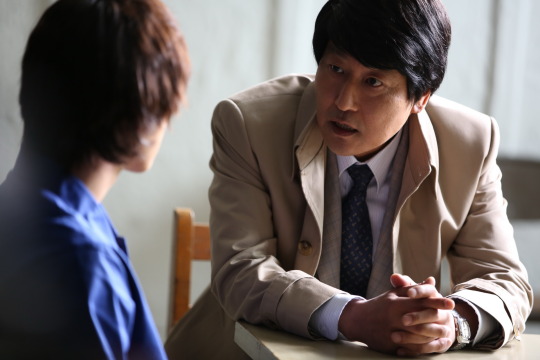
and when historical films like these are made, characterisation is often sacrificed. song tried to imbibe his character with as much depth as possible (the everyman rockstar overcoming inner turmoil with a strong moral compass), and im si-wan did a deft job at portraying the emaciated soulless student. but those familiar with korean history will also know that roh, although very much celebrated as a folk hero through sung, committed suicide in 2009 after intense bribery allegations. given a somewhat divided national memory of roh, this film is uncomfortably generous in its praise and commemoration of his activist legacy. it is fine to celebrate his deeds independently of what he did before or after, but to do so without nuance is slightly irresponsible film-making.
ironically, what i got most out of the film was a critical appreciation of historiography and historical memory in film-making. being a trained historian, seeing e.h. carr’s what is history? accused of instigating fascism provoked a lot of thinking. on one hand, the above is criticism of the film, but on the other, it is a demonstration of how engaged i am with the film’s material. i think there are better films about 1980s korea, but here is a decent one if you need a nationalistic jolt. – 6/10
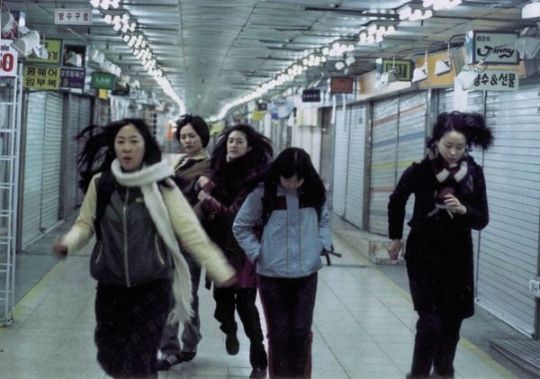
five high school friends, after graduation, embark on diverse and sometimes divergent paths to adulthood, creating a quiet movie of change and disruption. the movie is quiet not because it literally is - in fact, it is quite opposite, with the chatter and shrieks of five twenty year old girls. the movie is quiet because the movie is firmly centred on relatable characters that have been crafted with warmth, instead of theatrics and absurdist plots. (i was pretty sure, without checking, that take care of my cat is directed by a female - the sensitive dynamics of schoolgirl friend groups would not have been achieved by a male hand)
the film is centered around hye-joo (played by a young lee yo-won), tae-hee (played by the inimitable bae doona), and ji-young (played by ok ji-young). the other 2 girls - ethnic Chinese twins - are left as side characters. hye-joo is pretty and ambitious. but beneath her surface obsession about self-improvement and corporate progression lies insecurity that stems from the violence of her divorced parents and her lack of a college education. tae-hee comes from a normal middle-class family who runs a hot stone public bath, and her relatively well-off background allows her to be free from job-searching. she channels her energy in kind-hearted ways. beyond working for the family business, she volunteers to be a typist for a poet with cerebral palsy and makes friends with southeast asian immigrants near the port. ji-young, orphaned at an early age, lives with her grandparents in a shanty / container house that eventually collapses and leaves ji-young all alone. she has dreams of pursuing textile design overseas, but her poverty is continually compounded by unfriendly state support (she cannot find a part time job without guardians’ verification, and she is sent to juvenile detention after her grandparents’ death). she adopts a cat, which is passed on from friend to friend, hence the film name.
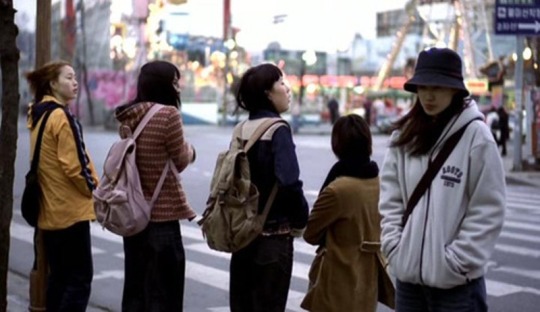
most of the film’s plot is around the dynamics of the 3, where ji-young and hye-joo grow apart and tae-hee remains loyal by ji-young. hye-joo is frustrated at ji-young’s self-pity and moodiness, ji-young is aggravated by hye-joo’s moral high horse and condescension. tae-hee plays mediator, but in her desire to keep the group together, she sticks too much to the presets of the past without realising friendships must evolve over time too. when hye-joo asks tae-hee why she is calling during work hours, tae-hee says “you used to call me all the time for no particular reason, too, in the past, why can’t i do the same now?”. at 2 hours, though, the film gets draggy at certain points, but the relatability of the characters somehow sustains the viewer’s interest. bae doona is such a natural and such a pleasure to watch too!
i really liked the setting choice of incheon - which embodies the film’s theme of modernisation and change. there are plenty of scenes of incheon’s port life (fishermen going out to sea and sorting their loot in early dawns) and incheon’s town (where small business owners are starting to hang big neon signboards and a swanky new international airport is opening). people from incheon are unapologetically less modern than the people in seoul. we see tae-hee’s parents order american ribs from tony roma in a traditional korean way (”why must we look at the menu in such detail. just give me what’s most popular here. if it’s not good we’ll look for you!”); we see people arriving off cruise ships with boxes and luggages, trying to make a living by importing goods; we see the twins’ chinese grandparents living in a chinese ethnic enclave that barely resembles korea; we see immigrants from myanmar and philippines speaking relatively fluent korean, amidst government posters warning against illegal immigration.
the symbolism of the cat as the girls’ relationship is less fascinating to me than the symbolism of incheon representing the girls’ fringe positions in society and the girls’ growth. the girls may not have been given the best lots in life, but no matter the paths the girls take, incheon’s inclusivity always has a place for them. – 8/10
(( Lady Vengeance - Just found this old painting on my hard drive from 2009. I did a project on Park Chan Wook films at University ))
Post link


Song Hye Kyo




Shin Se Kyung




Sisyphus The Myth, Poster. (2021)

Vincenzo, 2021


Um edit do Instagram Elite Dramaland.


“One thing I’ve been saying is that this is a film for adults. Ironically, it’s also one of the very rare cases where I’ve made a film that’s totally fine for teenagers to watch, because there’s no shocking violence or nudity in this film at all. So young people could watch it, but I don’t know whether it will be at all appealing or meaningful to them. What I mean when I say it’s a film for adults is that it’s really about mature, human relationships. It’s for anyone who has lost somebody or had to let go of someone. It’s for those who know the experience of having a romantic relationship of great subtlety and hard to define feelings — the very complex psychological changes that happen to you over the course of life.”
I Can Speak (2017) by Kim Hyun-seok
8/10
Hooked by its humor plus it has elements of things that I like (teaching an elderly, learning a language) pero gandang ganda ako sa story. Walang words to describe the struggle of comfort women. Must watch!
Post link
How do you emphasize to the audience that something is important? Well, you could always cut to a close-up, but how about something subtler? Today I consider ensemble staging — a style of filmmaking that directs the audience exactly where to look, without ever seeming to do so at all.
Eight Ways to Get the Audience to Look at Someone/Something:
1) Let Them Speak
2) Make Them Brighter or Bring Them Closer
3) Let Them Move (Especially Hands or Eyes)
4) Put Them in the Center of Frame
5) Turn Them Towards the Lens
6) Separate Them from the Group
7) Isolate Them by Moving the Camera
8) Have Other People Look at Them

CINEMATIC PAINTINGS:
Parasite (2019), Dir. Bong Joon-ho
• Cinematography By: Hong Kyung-pyo
[8/08/20]




